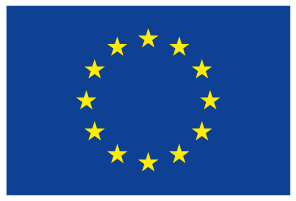France
2033
- Type : Energy planning, Project
- Size : Local community
- Area : Industrial, Residential, Utility
Environmental benefit
100% Renewable Energy for the District Heating Network of Grenoble
Share
France
2033
- Type : Energy planning, Project
- Size : Local community
- Area : Industrial, Residential, Utility
Environmental benefit
Discover this use case online
Grenoble will use a mix of local renewable energy sources on its pathway towards 100% renewable energy for its district heating network:
- Increase production of renewable and recovered energy via heating networks by 160%
- Quadruple solar thermal energy production
- Increase Geothermal production by a factor of 12.5
- Increase use of biogas and sustainable biomass
Grenoble will invest in 8 new local heating networks by 2030, running on renewables, while the main heating network will be further densified through mandatory connection of new buildings. In order to boost solar thermal energy, feasibility studies and investments in public solar thermal systems will be considerably supported, in particular via the Local Heating Fund. The use of geothermal energy will be boosted by the creation of compact geothermal networks, including a shared outlet network that will power 300,000 m2 of buildings in the metropolitan area. Finally, the excess heat produced on industrial sites will be recovered and injected into the heating network. This will be beneficial for the metropolitan area’s amount waste policy, as it will lead to less waste being incinerated to generate heat.
Governance
In order to implement the energy plans mentioned above in conjunction with all relevant local stakeholders, Grenoble has established a public energy committee. This new body includes stakeholders such as network operators, regulated tariff energy suppliers and other players from the energy production, distribution and demand management side.
 R-ACES has received funding from the European Union’s Horizon 2020 research and innovation programme under grant agreement N° 892429
R-ACES has received funding from the European Union’s Horizon 2020 research and innovation programme under grant agreement N° 892429
Grenoble will use a mix of local renewable energy sources on its pathway towards 100% renewable energy for its district heating network:
- Increase production of renewable and recovered energy via heating networks by 160%
- Quadruple solar thermal energy production
- Increase Geothermal production by a factor of 12.5
- Increase use of biogas and sustainable biomass
Grenoble will invest in 8 new local heating networks by 2030, running on renewables, while the main heating network will be further densified through mandatory connection of new buildings. In order to boost solar thermal energy, feasibility studies and investments in public solar thermal systems will be considerably supported, in particular via the Local Heating Fund. The use of geothermal energy will be boosted by the creation of compact geothermal networks, including a shared outlet network that will power 300,000 m2 of buildings in the metropolitan area. Finally, the excess heat produced on industrial sites will be recovered and injected into the heating network. This will be beneficial for the metropolitan area’s amount waste policy, as it will lead to less waste being incinerated to generate heat.
Governance
In order to implement the energy plans mentioned above in conjunction with all relevant local stakeholders, Grenoble has established a public energy committee. This new body includes stakeholders such as network operators, regulated tariff energy suppliers and other players from the energy production, distribution and demand management side.
